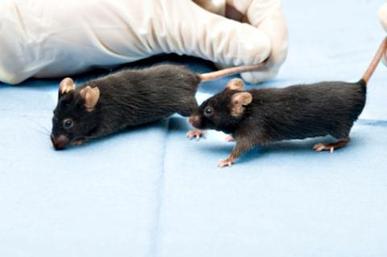
Scientists have identified a gene that causes deafness in mice, and they say it could lead to a better understanding of hereditary deafness in humans and maybe new treatments in the future.
Scientists had previously focused on a group of genes that were associated with inherited deafness, but now researchers at Washington University in Saint Louis have implicated a specific gene.
"So, when we inactivated the FGF20 gene in mice, we find that the resulting mice had no ability to hear, although they were otherwise very healthy, they were fertile, and they lived a normal lifespan," senior researcher David Ornitz says work by other scientists pointed them to that particular gene.
When examined, the mice had visible changes in their inner ear. Outer hair cells - critical to hearing - normally run in a densely packed row, but in these mice the hair cells were patchy, and there were fewer of them.
Sung-Ho Huh, a Korean post-doctoral fellow explains: "So we found there is patchy formation of sensory cells. And we also found, within the sensory cells, we found the number of specific outer hair cells had decreased, but the inner hair cells are intact."
Hereditary deafness is relatively rare. Much more common is hearing loss that comes with age or exposure to noise. Right now, about the only treatment is hearing aids. But Ornitz says a better understanding of how the FGF20 gene is linked to the body's system for capturing sound could lead to new therapies.
"Eventually, it might be possible to use a gene therapy approach or some other drug-type approach, in which you could actually correct a deficit due to loss or inactivation of FGF20. But that will require quite a bit more research."
David Ornitz, Sung-Ho Huh and their collegues published the research in the journal Plos Biology.
hereditary: 遺傳的
Deafness 'cure' is a goal for science
Inside the complex worlds of deaf culture
Scientists, engineers help elementary school teachers
(來源:VOA 編輯:Rosy)
關注和訂閱


翻譯
關于我們 | 聯(lián)系方式 | 招聘信息
電話:8610-84883645
傳真:8610-84883500
Email: languagetips@chinadaily.com.cn